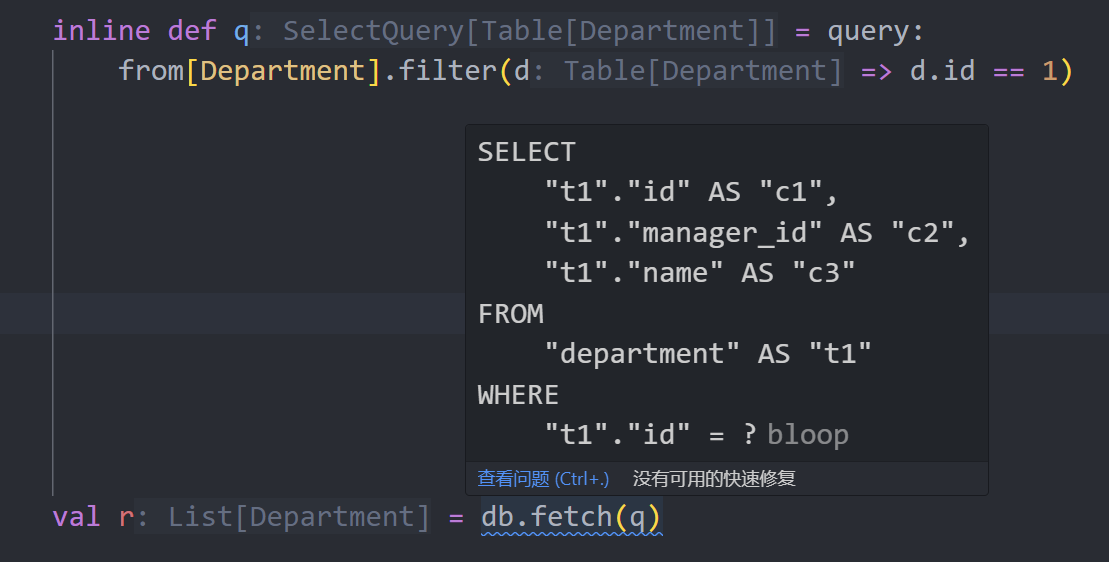Tips on Construct Queries
Query Reuse
Since sqala uses Scala code to manage query construction, it is easy to encapsulate common parts of several queries:
def baseQuery = query:
from[Employee]
.join[Department]((e, d) => e.departmentId == d.id)This way, the base query can be reused multiple times to build other queries:
val q1 = query:
baseQuery.filter((e, d) => e.name == "Dave")
val q2 = query:
baseQuery.sortBy((e, d) => d.name)However, if the shared part of the query is used as a subquery, the above code might produce incorrect query semantics. In such cases, we need to use using QueryContext when encapsulating the query:
def baseQuery(using QueryContext) =
from[Employee]And the actual query needs to be constructed within the queryContext method:
val q1 = query:
baseQuery.filter(e => e.name == "Dave")
val q2 = query:
baseQuery.filter(e => e.name == baseQuery.filter(ee => e.id == 1).map(ee => ee.name))In future versions, Scala 3's new feature Capture Checking might be utilized to enforce checks on whether queries are built within the same context. However, currently, it is important not to omit using QueryContext when writing reusable subqueries to prevent generating incorrect SQL.
Conditional Construction
In addition to the basic filterIf for constructing optional filtering conditions, sqala also supports more flexible conditional construction queries, such as grouping by different fields based on different conditions:
case class Data(dim1: Int, dim2: Int, dim3: Int, measure: Int)
val dim: Int = ???
val baseQuery = query:
from[Data]
val q = if dim == 1 then
baseQuery.groupBy(d => d.dim1).map(d => (d.dim3, sum(d.measure)))
else if dim == 2 then
baseQuery.groupBy(d => d.dim2).map(d => (d.dim3, sum(d.measure)))
else
baseQuery.groupBy(d => d.dim3).map(d => (d.dim3, sum(d.measure)))Improving Subquery Readability
Within the same query context, we can store independently executable subqueries in variables, avoiding the need to nest subqueries as in standard SQL, thereby improving readability:
val q = query:
val salaryAvg = from[Employee].map(e => avg(e.salary))
from[Employee].filter(e => e.salary > salaryAvg)Show SQL and Semantic Analystics
Sqala will try to generate query trees at compile time when queries are set to inline def and do semantic analystics for earlier error detection:


The premise is queries not containing dynamic features like filterIf.